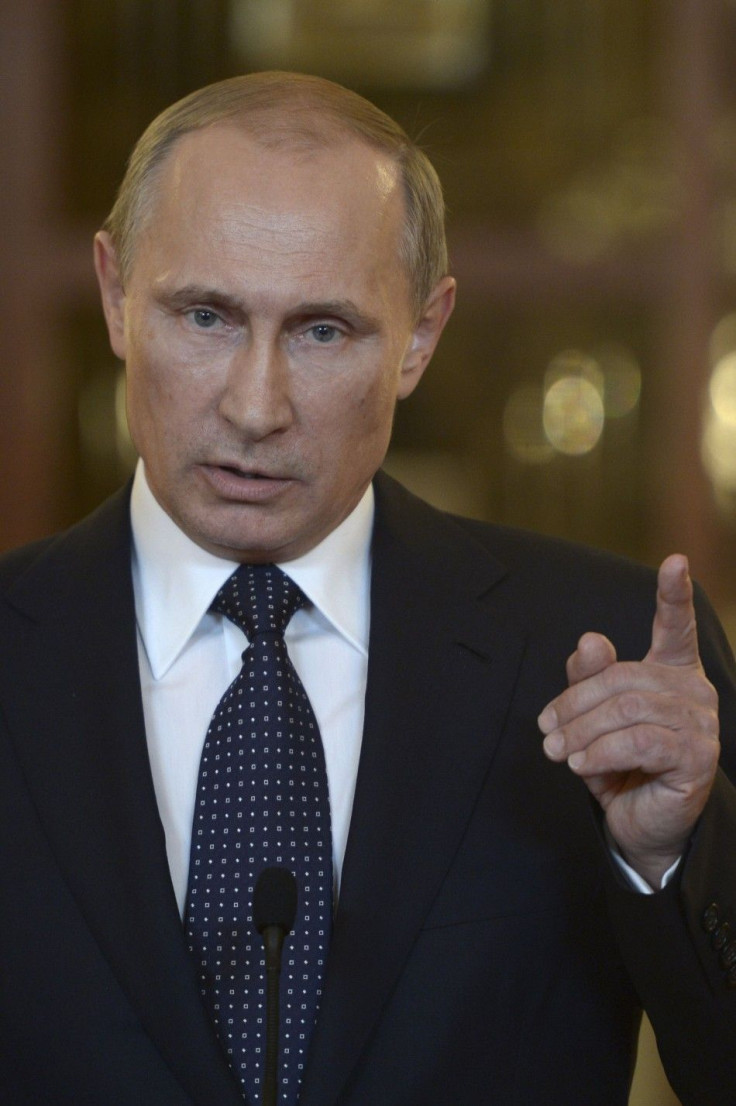Russia Warns NATO That It Will Beef Up The Military Doctrine To Face Rapid Action Threat

Russia has reacted sharply to the NATO plan to deploy a rapid-response team at its borders involving several thousand troops.
Russia vowed to adopt a beefed up new military doctrine to face the new challenges from NATO's plans, reported Agence France Presse.
Moscow's belligerence has added a new layer to the tensions ahead of NATO's two-day summit in Wales, starting on Thursday. The Ukraine situation is expected to dominate the NATO sessions.
The beleaguered Ukraine leader Petro Poroshenko will also attend the NATO meet and lobby with important NATO leaders. Last week, the Ukrainian president's appeal to EU for help in fighting back the Russian crack troops at the separatist-dominated east, was overlooked by Brussels.
It was NATO chief Anders Fogh Rasmussen who announced that the alliance would set up a force of several thousand troops that could be immediately deployed in eastern Europe to meet any Russian threat.
According to New York Times, the rapid-response unit would have the support of all NATO members including Poland, which was a Soviet ally and has distanced from Russia under President Vladimir Putin.
Moscow's Response
Mikhail Popov, deputy secretary for the Russian National Security Council described the NATO defence plan as an example of the desire of the US and other NATO leaders to aggravate tensions with Russia.
Popov added that Russia's 2010 military doctrine permits the use of nuclear weapons if and when its national security is endangered. Russia will resist the NATO threat including the new European missile defence system.
Russian Defence Minister Sergei Shoigu said Russia's armed forces would be given more teeth with the deployment of 230 new military helicopters and jets by the end of this year.
Russia also denied the charge of it sending troops to eastern Ukraine for creating a corridor along the Sea of Azov between Russia and the Crimean peninsula. But some separatist commanders have confirmed that vacationing Russian soldiers have already joined their fighting ranks.
UN for Dialogue
Meanwhile, UN Secretary General Ban Ki-moon stepped in to douse the tensions and told all sides to observe restraint. There is no military solution to the crisis, Ban said in New Zealand. A political dialogue is more important that must be in the most sustainable way.





















